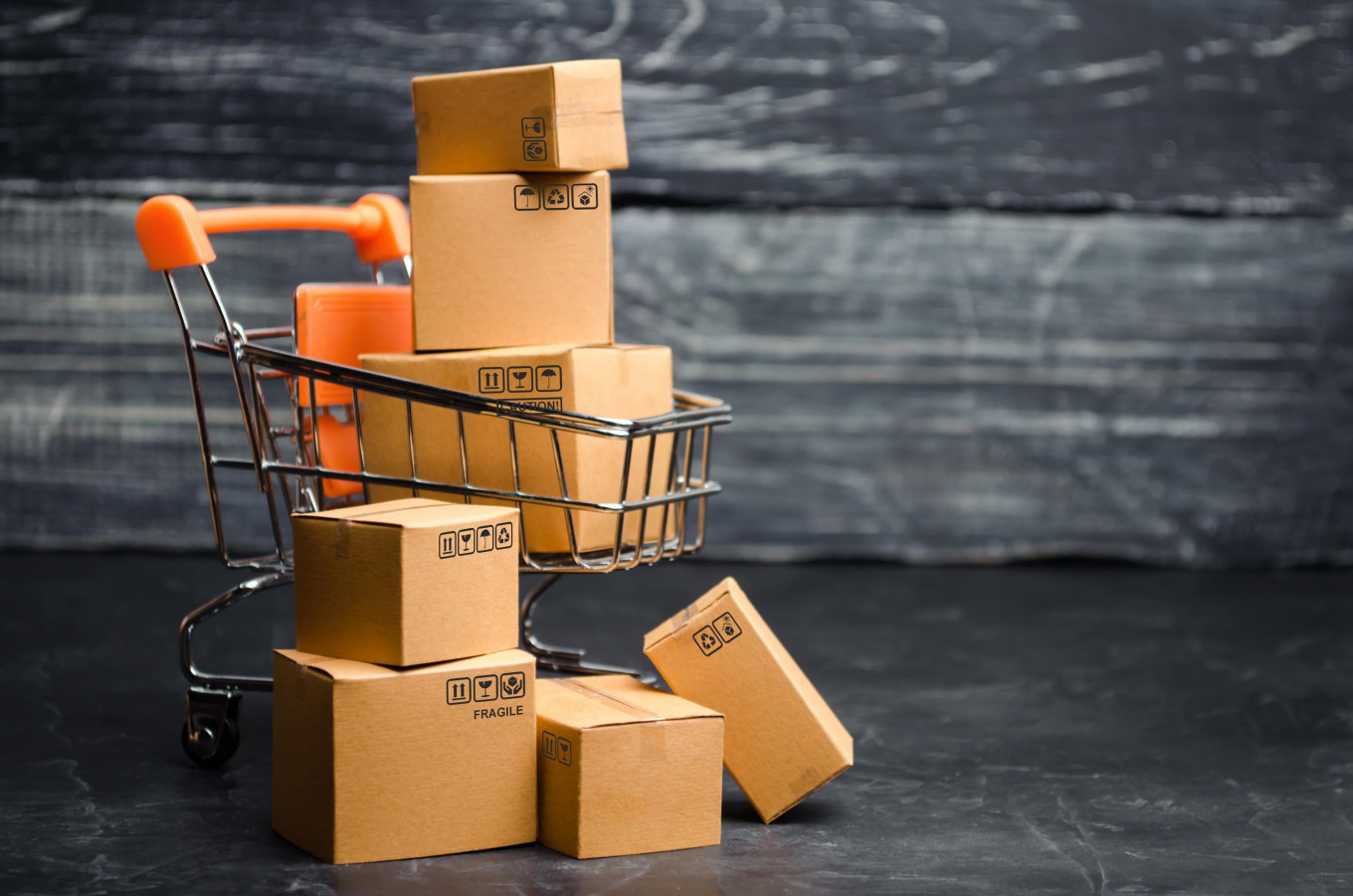Will the COVID-19 pandemic accelerate RI’s ‘retail apocalypse’?
Change Size

W
ith most retailers shifting their focus from brick-and-mortar outlets to e-commerce, brands shutting down physical outlets and shopping malls struggling to hold tenants, a phenomenon called “retail apocalypse” has begun across various parts of Asia.
In Asia, the phenomenon is most visible in China, dubbed as the “Leader of the Great Retail Apocalypse in 2017.” This trend is especially painful among luxury brands: Since January 2018, top-tier brands, including Hermès and Louis Vuitton have closed 62 stores in Greater China up to October 2018.
But again, one story’s end seeds another to begin: “E-commerce has taken off with greater speed in China than almost anywhere else on Earth,” according to a South China Morning Post story.
These brands are simply shifting to e-commerce platforms. The story specifically credits Alibaba (the media outlet’s owner) for rapidly transforming China’s retail landscape into a mainly digital one.
As a result, China has transformed the majority of its brick-and-mortar retailers into places where people can hang out and socialize with other people, such as restaurants or cafés.
Then, what about Indonesia? Indonesia’s also in a retail apocalypse onset, albeit more slowly, according to Nailul Huda, an economist with the Institute for Development of Economics and Finance’s (INDEF) Center of Innovation and the Digital Economy.
“Many Indonesians still combine their shopping and recreation activities, so many of us still enjoy going to the shopping mall, enjoying our leisure time while buying things from its physical stores,” he wrote to The Jakarta Post in a WhatsApp message on Nov. 25.
He went further to say that the COVID-19 pandemic was currently triggering an offline retail collapse across Indonesia, accelerating a digital transformation that had already happened in the past few years.
Data from Statista.com reveal that a majority of Indonesians shop online more frequently during the pandemic than before the outbreak.
“More people have also been relying on e-commerce platforms to do their regular grocery shopping instead of going to supermarkets. For individuals who don’t want to go outside their homes for fears of contracting the virus, online shopping has become a very good alternative to meet their needs and wants,” he said.
Prior to this pandemic, many prominent retail brands, such as Ramayana and Matahari, had already closed many of their outlets across Indonesia. The penetration of the digital economy and social media marketing into Indonesia has slowly changed consumer behavior.
Read also: Bruule bakes spaghetti to success, boosts sales with digital platform
So, what should these retail brands do when the COVID-19 pandemic has all of a sudden disrupted their physical stores’ operations?
Pia Agung Bali, a famous Indonesian-style snack brand from Bali, is a very interesting case study to highlight here.
Agung Saputro, the founder of the business whose snacks have become a staple gift for anyone traveling to Bali thanks to their signature crunchy crust and sweet fillings, said he truly had no idea that, all of a sudden, he had to shut down his store for an unknown time period in the fourth week of March, because no tourists came to the island due to the coronavirus.
The temporary closure of the physical store, established in 2016, was unprecedented, considering that people, mostly travelers, would previously come in droves to buy the famous pie for colleagues, friends and family members at home.
“The offline store’s sales figures account for 70 percent of Pia Agung Bali’s [revenue]. From March to May 2020, our sales were zero, because the physical store had to close,” Agung explained.
Adverse circumstances prompt people to tap into their resilience and resourcefulness. In response to the situation, Agung swiftly boosted his store’s online marketplace and website presence, while also increasing social media ads and offering discounts such as free delivery.
By June, Agung had doubled his brand’s revenue compared to the pre-pandemic era. When the brand reopened its physical store in the same month, Agung could enlist his 12 employees once again.
“Nothing has given me more happiness than that,” he said.
He then said that, up to October 2020, his store’s presence in Tokopedia had given him five times more revenue than other online marketplaces.
Thanks to Tokopedia’s online marketplace, his brand also attracted new consumers outside Bali, such as from Medan in North Sumatra, Palembang in South Sumatra, Samarinda in East Kalimantan, Ambon in Maluku as well as Merauke in Papua, as quoted by a tribunnews.com article.
Up until Nov. 18, Pia Agung Bali had sold 6,100+ products through Tokopedia.
Therefore, Agung agreed that, amid the acceleration of the physical retail collapse during the pandemic, the ability to strategize using online marketing and selling techniques, as well as the ability to synergize with online marketplaces, can help brands survive their offline store shutdown.
Nailul agreed that these strategies could give big Indonesian retailers hope amid such a profound business transformation.
One good news: A many big Indonesian retailers are already tech-savvy: “Not only do they already have their own websites, they are also more inclined to use e-commerce platforms in their buying-and-selling activities,” he said.
“The reason? E-commerce platforms have been able to give exciting promos and discounts to consumers. All in all, e-commerce platforms give consumers more diverse and affordable delivery options. No wonder big retailers such as Adidas, i-box, and Matahari have mushroomed on e-commerce platforms,” he continued.
Agung concurred, citing Tokopedia’s free delivery promo as one of the driving forces behind his brand’s recovering sales.
“One obstacle that we still need to address [to promote this digital retail transformation] is to close the digital gap, which hampers the expansion of companies to the public at large, especially people who live outside Java,” Nailul said. (yogi)










